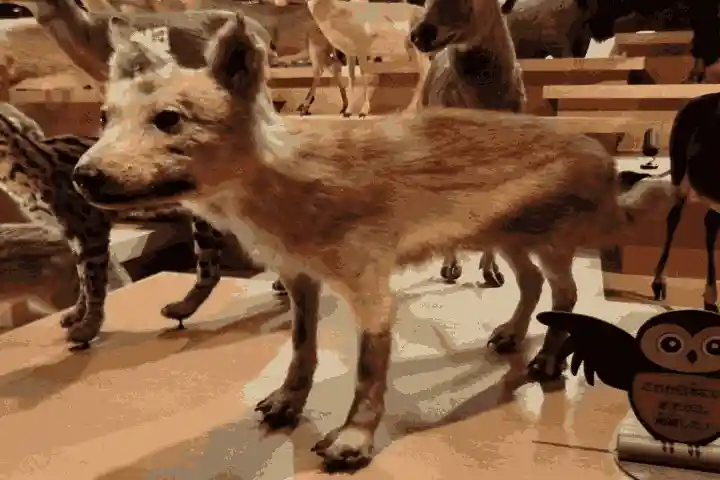According to scientists, since dogs of today have not been found to be closely related to the wolves of the present day, the former must have evolved from a species which is extinct. This species scientists say is likely to be the grey wolves, according to New Scientist.
An article in smithsonianmag.com stated that the researchers after comparing the preserved Japanese wolf specimens’ genetic data found that this species may be more closely related to dogs than any other wolf. This discovery takes on the earlier theories that domestication may have taken place in West Asia and Western Europe.
Incidentally the Japanese wolf (Canis lupus hodophilax) became extinct in the early 20th Century about 100 to 120 years ago. This extinction was caused by a purge of these species due to a rabies epidemic in the 17th Century.
Also read: Like humans, dogs too suffer from hyperactive impulsive behaviour
A smaller subspecies of the grey wolf, the Japanese wolf appearance of small, border collie–like stature makes it look distinct. This wolf was indigenous to Honshū, Shikoku, and Kyūshū in the Japanese archipelago while being worshipped and respected as a guardian of farmers and travellers. Interestingly, a study conducted in January this year highlighted that the Japanese wolf was related closely to the Siberian wolves.
In order to check the relation between the modern dogs and the Japanese wolves, scientists sequenced nine genomes of Japanese wolves from museum specimens. Besides this, 11 genomes from modern Japanese dogs, including the Shiba Inu, were also sequenced by the study’s lead author Yohey Terai and his colleagues.
Terai, is an evolutionary biologist at the Graduate University for Advanced Studies in Hayama, Japan.
Also read: Augmented Reality Helps People To Overcome The Fear Of Spiders!
Finally, all these sequences were compared to other genomes including that of foxes, coyotes, dingoes, and other modern wolves and dogs from all over the world.
Following this comparison, it was found by the researchers that the Japanese wolf is part of an evolutionary branch of wolves who evolved around 20,000 to 40,000 years ago. Significantly, it was from this branch that the Japanese wolves evolved while from the same branch also rose the modern dogs, according to New Scientist. The researchers feel that the divergence between the modern dogs and the Japanese wolves may have happened in East Asia.
Laurent Frantz, evolutionary geneticist from the Ludwig Maximilian University of Munich told Science: “If true, this is very important. It’s the first time we’ve seen a wolf population that’s close to dogs.” Frantz was not part of the study team.
It may be noted that not all the dogs have genetic overlap with the Japanese wolf. The ones like the dingo, New Guinea singing dog and other Japanese breeds – the Eastern dogs — shared with the Japanese wolves five per cent of their DNA. The Labrador retrievers and German shepherds, known as the Western dogs, shared much less genetic material.
On this issue, scientists assumed that Japanese wolves may have bred with dogs migrating East, while later, these dogs bred with Western dogs resulting in manifestation of the Japanese wolves’ genetic signature.
Terai, in order to confirm if dogs arose from East Asia, hopes to extract DNA from ancient wolf bones found in the region, so that more data can be studied to find out if modern dogs and Japanese wolves share a common ancestor.
Commending the study, Frantz told Science: “This is a really good step forward. Wolves are the key to understanding dogs, so it’s going to be really exciting to see where this goes.”




















